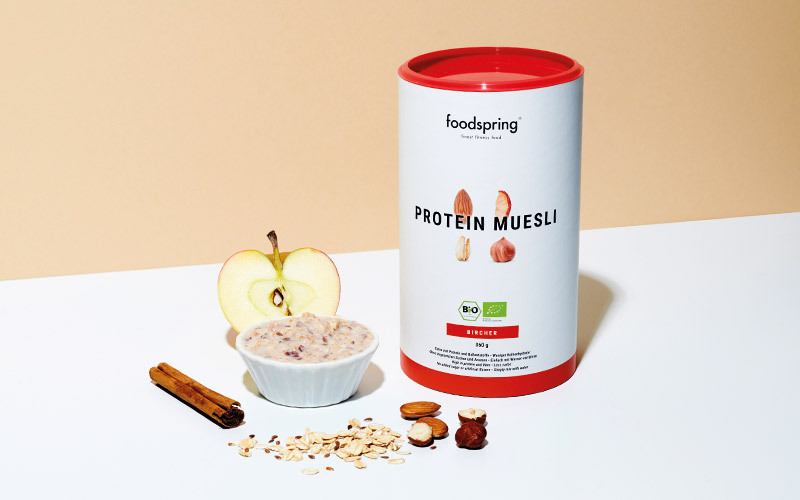Boost your self-esteem with 7 simple daily routines
 PeopleImages
PeopleImages
Want to build up confidence in your abilities and conquer challenges with ease? What are you waiting for? Boost your self-esteem now with some daily routines that will make you more confident and resilient.
What Is Self-Esteem?
What are the first thoughts you have when you look in the mirror? Be honest: What words actually come to mind? Everything you think about yourself and the way you frame it are all part of your self-regard. In psychology, self-esteem is made up of all the ways you evaluate yourself: I lack discipline. My calves are puny. My face is chubby. Or: I am beautiful. I have a great laugh. My work is high quality. All these beliefs you have about yourself, both positive and negative, contribute to your self-esteem.
People with high self-esteem are confident in their abilities and usually find it easier to take on new challenges. People with low self-esteem may have difficulties believing in themselves and are more likely to give up.
The 3 pillars of self-esteem
Self-esteem, the way you judge yourself, is based on three pillars:
- Self-awareness: how well you know your personality, your abilities, and your goals, as well as how much you understand your own actions.
- Self-confidence: how much you believe in yourself and your strengths.
- Self-acceptance: how much you accept your weaknesses and trust in the knowledge that you are always good enough.
Sometimes self-esteem is reduced to just one of these pillars: self-confidence, self-awareness, or self-acceptance. But it’s important to remember that they are all part of your overall sense of worth. So if you want to raise low self-esteem, and help prevent the development of mental health problems, you can work on all three of these areas.

What Influences Self-Worth?
We aren’t born with perfect self-esteem.The external recognition we receive through all our relationships influences our self-respect and self-esteem in general. If kids laughed at you because you never kicked the ball into the goal at school, or if you were constantly picked last for the team, you may still think you aren’t athletic today. Being made fun of can lead to low self-esteem because it leads to kids developing deep-set beliefs about themselves. These self-doubts then become beliefs about yourself or even part of your personality over the years. The fact that they usually aren’t true doesn’t matter.
Typical external factors and life events that cause low self-esteem are:
- Exclusion
- Shaming or bullying
- Guilt from family
- Pressure to succeed
- Failures
On the other hand, many external factors can also raise your self-esteem:
- A sense of achievement
- A sense of belonging
- Attention from parents or a partner
- Praise and recognition
- Fostering talents
No one’s life goes perfectly smoothly every day. At some point, everyone is confronted with failures or expectations that are too high. These moments can have a huge impact on self-esteem and even lead to mental health problems at times. The trick is to be aware of these various influences and counteract them in time: For example, if you’ve been rejected from a job and starting to think you’re a complete failure, do something you’re good at to compensate. Or get together with a loved one or friends, and they’ll help with an extra dose of care and affirmation.
How Does Low Self-Esteem Affect Me?
People with low self-esteem often get stuck in life: They question their abilities, focus on their weaknesses, withdraw in relationships because they’re afraid of rejection, and constantly blame themselves for mistakes. On the other hand, most people with healthy self-esteem….
- can express and justify their needs and opinions more clearly.
- can make decisions more easily.
- conduct relationships on an equal footing and are less likely to become dependent.
- assess situations realistically and experience failure less frequently.
- are more resistant to stress.
Ready to give your self-esteem a boost? Then let’s get started!
7 Daily Routines for High Self-Esteem
Boost your self-esteem and help improve your happiness and success in life with these seven daily habits:
1. Take time for yourself and your thoughts every day.
People with high self-esteem know themselves extremely well. They know what makes them feel good and what doesn’t, where their talents lie, and which skills they would like to develop. Because they’re in tune with their inner values, they can act accordingly, which makes them happier and more independent in the long run.
To help build self-esteem, take a few minutes of me-time every day. Meditate, write down the content of your thoughts, or take a walk outside. The better you get to know yourself, listen to your inner voice, and take care of your mental health, the more your self-esteem can grow.
2. Lavish compliments on others
When was the last time you complimented someone? What did it feel like? Do you remember the smile on their face and the feeling of warmth it gave you? Giving a compliment not only boosts the other person’s self-esteem, but also your own. Putting positive thoughts into words fills up your energy stores and replenishes your own self-love.
Tip: Giving compliments is one thing. It’s also important to learn to accept compliments from your friends without judging their content or questioning them.
3. Be inspired
Getting inspiration from your friends or role models can help you focus on what you want in many areas of your life. But that doesn’t mean constantly comparing yourself in all situations. There will always be someone who makes more money, is more limber on the yoga mat, or has more perfect curves. Comparisons often lead to negative thoughts because, let’s face it, more often than not, we judge ourselves to be lazier, flabbier, and more insignificant. Instead of falling into that, ask yourself things like: What can I learn from them? What do we already have in common? What inspires me?
4. Do a good deed every day
Today more than ever, our lives are about optimizing ourselves. There’s always something we can be better at or working on. But when we constantly focus on what needs to be improved – our shortcomings, unfulfilled desires, and high expectations – it’s not that uncommon to end up with a negative self image.
Turn this inner spotlight outwards for a change and see what you can do for others. One good deed a day will distract you from thoughts about your failings and help show you what a valuable person you actually are.
5. Do something you love
When you spend time doing the things you love, you usually enter a flow state: you forget everything around you, any negative thoughts, and become completely absorbed in the moment. These experiences leave you with a sense of inner satisfaction and raise your self-esteem.
Do something every day that puts you in that state and makes you feel good – whether it’s reading, walking your dog, exercising, or cooking.

6. Exercise and eat healthy
Self-esteem is closely linked to how comfortable you feel in your skin. And you can work on your relationship with your body with daily exercise and a healthy diet for your physical and mental health.
Check out our free workouts here and add variety to your daily exercise routine!
Don’t worry, you don’t have to do a hardcore fitness program six times a week! In fact, working out too much can be counterproductive. And if you have any pre-existing conditions, you should consult a doctor before starting a fitness routine.
Walking or gentle yoga can also improve your sense of well-being. In addition, make sure you eat a healthy diet with all the important macro- and micronutrients. They give you the strength to get the best out of yourself every day.
Tip: For a confident start to the day, go for our delicious Bircher Protein Muesli – perfect for anyone who’s short on time but doesn’t want to compromise on good food.

7. Celebrate both your successes and failures
If you have high self-esteem, you’ll be familiar with both success and failure and know how to handle both well with positive self-talk. From now on, celebrate yourself every night for what you accomplished during the day and use self-compassion to focus on what lessons you were able to learn.
A gratitude diary can also boost low self-esteem: Write down three things you’re grateful for every day.
Conclusion
- Self-esteem encompasses all the ways we judge ourselves.
- Self-confidence, self-awareness, and self-acceptance are the three pillars self-esteem is based on.
- External factors such as exclusion, failure, and the pressure to succeed, even from your childhood, can weaken your self-worth.
- Attention, a sense of belonging, and praise, in contrast, have a positive influence on self-esteem.
- Your insecurities aren’t set in stone: As an adult, you can challenge deep-set, negative beliefs from childhood and raise low self-esteem through daily routines.
Sources for this article
We at foodspring use only high-quality sources, including peer-reviewed studies, to support the facts within our articles. Read our editorial policy to learn more about how we fact-check and keep our content accurate, reliable, and trustworthy.

































